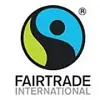
Fairtrade Climate Standard
### Fairtrade Climate Standard
The **Fairtrade Climate Standard** is an initiative developed to support smallholders and rural communities in producing Fairtrade Carbon Credits and gaining access to the carbon market. This standard was created in collaboration with the Gold Standard, an internationally recognized organization with expertise in climate and development projects.
#### Purpose
The Fairtrade Climate Standard aims to:
- **Mitigate Climate Change**: Enable producers to contribute to climate change mitigation.
- **Adaptation**: Help communities adapt to the impacts of climate change.
- **Fair Compensation**: Ensure fair prices and premiums for carbon credits.
#### Key Principles
1. **Democracy and Transparency**:
- All producer participants have a voice and vote in decision-making processes.
- Detailed contracts outline the terms and conditions of Fairtrade transactions.
2. **Fairtrade Minimum Price**:
- A minimum price ensures that the average costs of running the projects are covered, providing a safety net for carbon projects.
3. **Fairtrade Premium**:
- An additional premium is paid to producer organizations, which can be invested in community resilience projects.
4. **Capacity Building**:
- The standard offers opportunities for producers to improve their climate change knowledge and develop project management skills.
5. **Labour Conditions and Environment**:
- Projects must respect Fairtrade principles related to environmental and labor practices.
6. **End-Buyer Emissions Reductions**:
- Buyers of Fairtrade Carbon Credits must have a credible plan to reduce their emissions and compensate with Fairtrade Carbon Credits.
#### Certification Process
1. **Application**: Producers or organizations apply for certification.
2. **Assessment**: An independent auditor evaluates compliance with the standard.
3. **Certification**: Successful applicants receive certification and can trade Fairtrade Carbon Credits.
4. **Monitoring**: Ongoing audits ensure continued compliance.
#### Benefits
- **Economic**: Fair prices and premiums improve economic stability for producers.
- **Social**: Better working conditions and community investments enhance social well-being.
- **Environmental**: Sustainable practices help protect natural resources and reduce carbon footprints.
- **Consumer Trust**: The Fairtrade label assures consumers of ethical and sustainable production.
#### How to Support
- **Purchase Certified Products**: Look for the Fairtrade Climate Standard label.
- **Spread Awareness**: Educate others about the importance of fair trade and climate action.
- **Get Involved**: Join Fairtrade initiatives and support their mission.
### Conclusion
The Fairtrade Climate Standard is a comprehensive framework designed to promote fairness, sustainability, and climate resilience. By adhering to this standard, producers and organizations can contribute to a more equitable and sustainable future while addressing the challenges of climate change.
About (Fairtrade Climate Standard)
Fairtrade Climate Standard
The Fairtrade Climate Standard is an initiative developed to support smallholders and rural communities in producing Fairtrade Carbon Credits and gaining access to the carbon market. This standard was created in collaboration with the Gold Standard, an internationally recognized organization with expertise in climate and development projects.
Purpose
The Fairtrade Climate Standard aims to:
- Mitigate Climate Change: Enable producers to contribute to climate change mitigation.
- Adaptation: Help communities adapt to the impacts of climate change.
- Fair Compensation: Ensure fair prices and premiums for carbon credits.
Key Principles
- Democracy and Transparency:
- All producer participants have a voice and vote in decision-making processes.
- Detailed contracts outline the terms and conditions of Fairtrade transactions.
- Fairtrade Minimum Price:
- A minimum price ensures that the average costs of running the projects are covered, providing a safety net for carbon projects.
- Fairtrade Premium:
- An additional premium is paid to producer organizations, which can be invested in community resilience projects.
- Capacity Building:
- The standard offers opportunities for producers to improve their climate change knowledge and develop project management skills.
- Labour Conditions and Environment:
- Projects must respect Fairtrade principles related to environmental and labor practices.
- End-Buyer Emissions Reductions:
- Buyers of Fairtrade Carbon Credits must have a credible plan to reduce their emissions and compensate with Fairtrade Carbon Credits.
Certification Process
- Application: Producers or organizations apply for certification.
- Assessment: An independent auditor evaluates compliance with the standard.
- Certification: Successful applicants receive certification and can trade Fairtrade Carbon Credits.
- Monitoring: Ongoing audits ensure continued compliance.
Benefits
- Economic: Fair prices and premiums improve economic stability for producers.
- Social: Better working conditions and community investments enhance social well-being.
- Environmental: Sustainable practices help protect natural resources and reduce carbon footprints.
- Consumer Trust: The Fairtrade label assures consumers of ethical and sustainable production.
How to Support
- Purchase Certified Products: Look for the Fairtrade Climate Standard label.
- Spread Awareness: Educate others about the importance of fair trade and climate action.
- Get Involved: Join Fairtrade initiatives and support their mission.
Conclusion
The Fairtrade Climate Standard is a comprehensive framework designed to promote fairness, sustainability, and climate resilience. By adhering to this standard, producers and organizations can contribute to a more equitable and sustainable future while addressing the challenges of climate change.